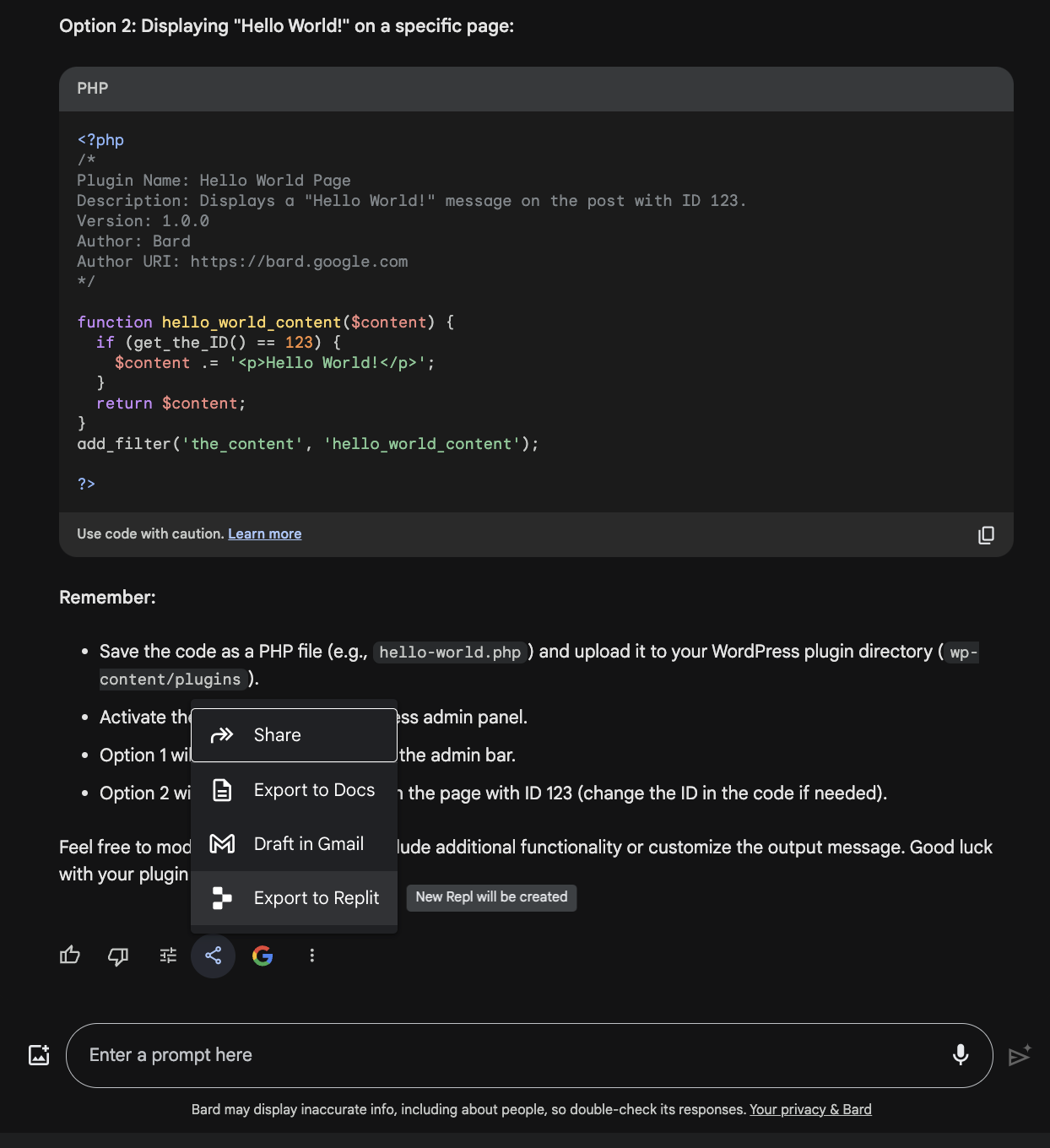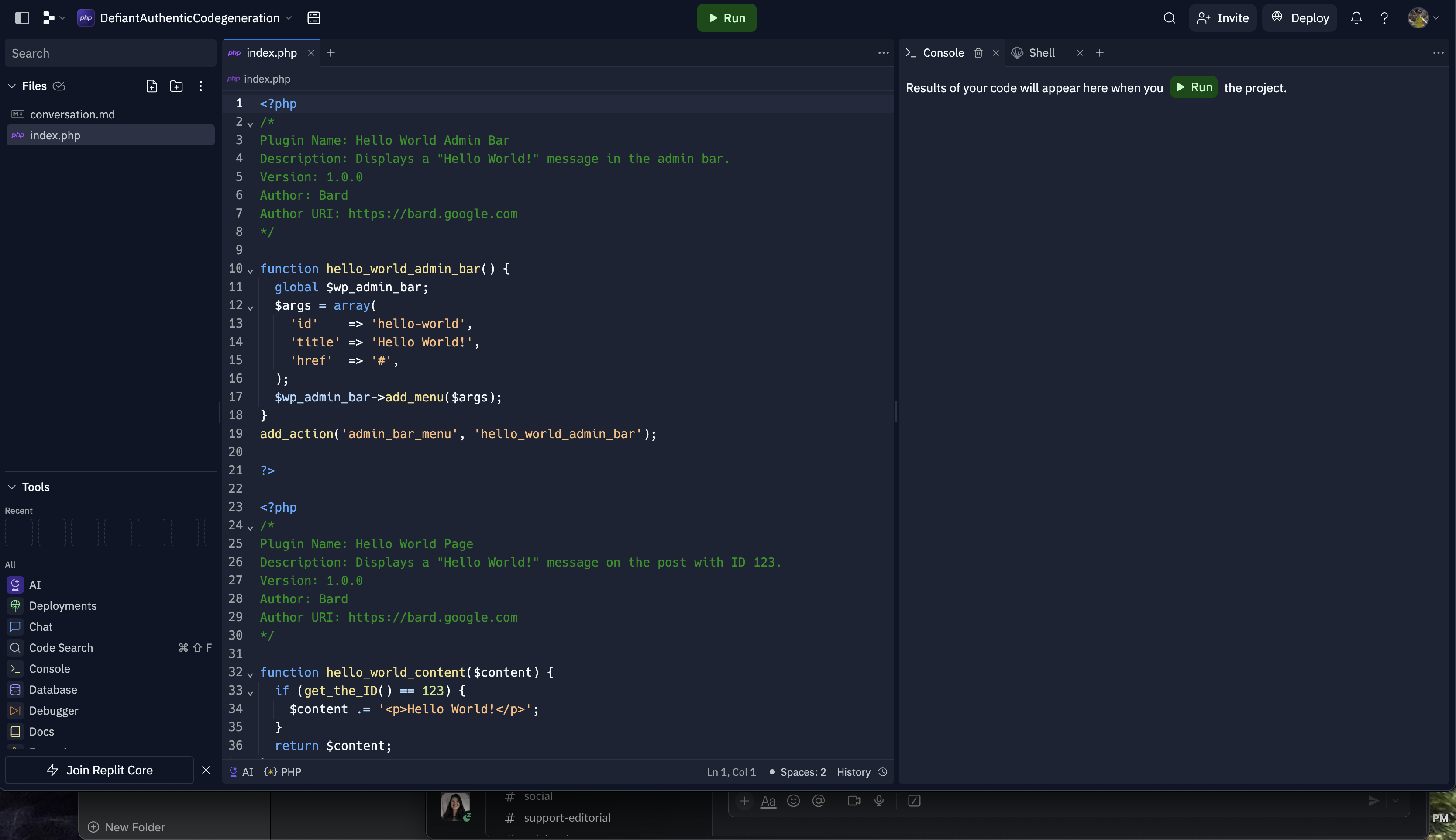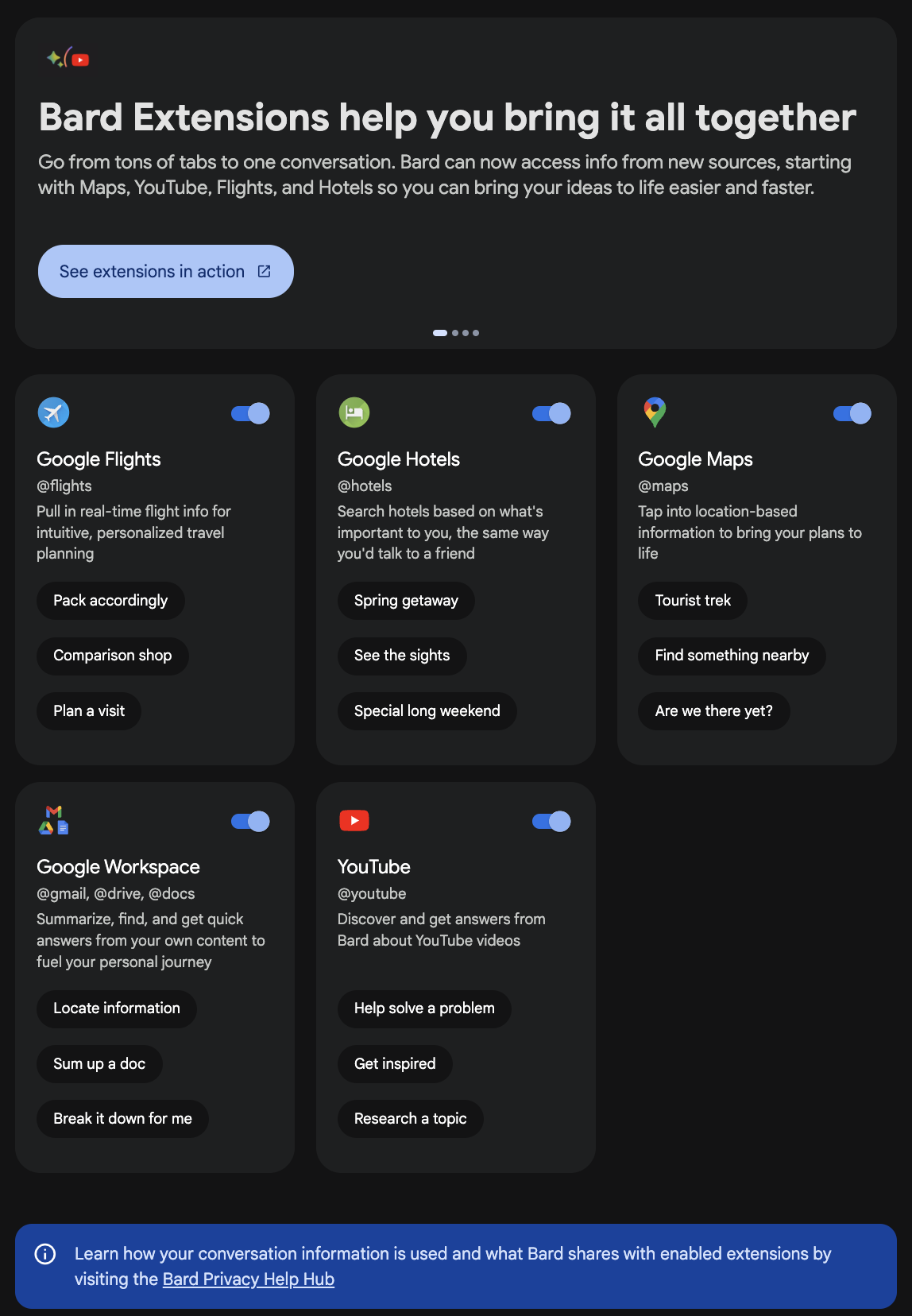Google Bard: Export Code To Replit In 18 Programming Languages

The latest updates to Google Bard expanded the Export to Replit feature to 18 programming languages. In addition, Google Bard now supports extensions like Workspace in Japanese and Korean.
In this article, we’ll explore the details of Google Bard’s latest updates and how these new features can be used for SEO.
Google Bard: Export To Replit In 18 Programming Languages
Introduced in July with support for Python only, the Export to Replit feature now supports a total of 18 programming languages: Bash, C, C#, C++, CSS, Dart, Go, HTML, Java, JavaScript, Kotlin, PHP, Python, Ruby, Rust, SQL, Swift, and TypeScript.

The expansion likely comes after feedback from developers using Bard for more than Python coding.
Now, after you code something in Bard, you can send it to your Replit account to integrate with the rest of your coding projects, such as WordPress plugin development.
 Screenshot from Google Bard, December 2023
Screenshot from Google Bard, December 2023How To Use Google Bard’s Coding Capabilities + Export To Replit For SEO
Marketers can utilize the new Google Bard feature for coding in a variety of ways for SEO and content marketing. Here are just a few ideas.
- Use Bard to brainstorm content ideas based on trending topics, search queries, and competitor research. Export the results to Replit and create an automated content calendar that adapts dynamically.
- For content optimization, you could use Bard to generate different sets of meta descriptions and titles based on user intent and search queries. Export the code to Replit and automatically deploy it to update your website dynamically, improving click-through rates.
- Create quizzes, polls, or data visualizations based on your content using Bard’s coding knowledge. Export and embed them on your webpage to increase user engagement and dwell time, sending positive signals to search engines.
- Bard could generate schema markup for your content based on its understanding of the topic. Export the code and implement it on your website to improve rich snippets and knowledge panel appearances in search results
- Write Python scripts with Bard and export them to Replit to crawl your website and identify broken links. Fix them promptly to improve site structure and user experience.
- Develop scripts that test your website’s mobile responsiveness using Bard’s Webdriver libraries. Export and run them to discover and fix any mobile-friendliness issues, a crucial ranking factor
- Generate automated scripts with Bard to identify and prioritize page speed bottlenecks. Export them to Replit and use them to track and optimize website performance continuously.
Google Bard Extensions Available In Japanese, Korean, And English
Along with the update to Export to Replit functionality, Google Bard extensions now support English, Japanese, and Korean. This will give more users access to information from Google apps such as YouTube, Hotels, Flights, Maps, and Workspace apps (Gmail, Drive, and Docs).
 Screenshot from Google Bard, December 2023
Screenshot from Google Bard, December 2023Updates To The Google Bard Privacy Help Hub
Finally, Google made updates to the Bard Privacy Help Hub.
When connected to Google Workspace, Bard utilizes your personal data, including your name, email address, and private content like emails or documents, to offer features like summarizing emails upon request or sharing content.
This data, sourced from Google Workspace, is used to maintain and improve Bard services, including service recovery and user experience assessment.
However, this data is not accessible to human reviewers, not employed for enhancing generative machine learning technologies, not used for advertising purposes, and not stored beyond the necessary period for service provision and maintenance.
You can manage this data interaction by adjusting your Extensions settings in Bard and modifying Bard Activity settings, which control the activation of Extensions.
Conclusion
The continuous evolution of Google’s Bard, with its new language support and advanced coding capabilities, demonstrates a forward momentum in AI-driven tools for search and marketing.
Industry experts should explore how Bard’s features can be integrated into their strategies for a competitive advantage.
Featured image: Tada Images/Shutterstock
Source link : Searchenginejournal.com



